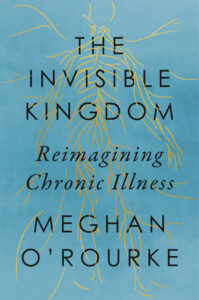By RANA TAHIR

Kuwait City, Kuwait
Trenches at ShowBiz, Kuwait City

Documentary filmmaker Alice Diop brings an unsettling sense of reality to her first fiction feature, which follows a novelist attending the trial of a woman accused of drowning her 15-month-old child. Based on a real-life incident of infanticide, the courtroom proceedings depicted in Saint Omer borrow from the 2016 trial of Fabienne Kabou, which Diop herself attended. In synopsis, this may sound like a lurid mix of fiction and documentary, but this precise and emotionally complex film, which sprung from Diop’s fascination with Kabou’s trial, does not have the anxiety-stoking energy of a true-crime story. It is so rooted in the point of view of Rama, the writer attending the trial, that I hesitate to describe it as a courtroom drama. The film’s dual focus—on both Rama, the writer, and Laurence, the young woman accused of infanticide—turns the trial into something other than pure spectacle and results in a story that looks closely at the frighteningly powerful bond between mother and child.
This piece is excerpted from Tell Me How It Ends by Valeria Luiselli, a guest at Amherst College’s 2023 LitFest. Register for this exciting celebration of Amherst’s literary life.

“Why did you come to the United States?” That’s the first question on the intake questionnaire for unaccompanied child migrants. The questionnaire is used in the federal immigration court in New York City where I started working as a volunteer interpreter in 2015. My task there is a simple one: I interview children, following the intake questionnaire, and then translate their stories from Spanish to English.
But nothing is ever that simple. I hear words, spoken in the mouths of children, threaded in complex narratives. They are delivered with hesitance, sometimes distrust, always with fear. I have to transform them into written words, succinct sentences, and barren terms. The children’s stories are always shuffled, stuttered, always shattered beyond the repair of a narrative order. The problem with trying to tell their story is that it has no beginning, no middle, and no end.
This piece is excerpted from We All Want Impossible Things by Catherine Newman, a guest at Amherst College’s 2023 LitFest. Register for this exciting celebration of Amherst’s literary life.

“What do you think happens after you die?” she says. “Oh!” I say. “Gosh.”
I was raised in a fully atheist household, so not much is the short answer. “Just toss me in the dumpster when I go!” my dad likes to announce, and when I’m like, “Um, Dad, I think funerals are actually more about—” he interrupts me. “In the dumpster!” “Okay!” I say. “The dumpster it is!”
By MARTI DUMAS
This piece is excerpted from Wildseed Witch by Marti Dumas, a guest at Amherst College’s 2023 LitFest. Register for this exciting celebration of Amherst’s literary life.

The next day, a woman with a little pink umbrella showed up at my house at the crack of dawn. My mother always gets up that freakishly early, and I was up because something kept dinging even though my phone was on silent. It took me a few minutes to figure out that the sound was coming from my computer. I must have left YouTube open when I collapsed after my rant. The dinging was notifications for MakeupontheCheapCheap. I had 81 new followers and 147 new likes, and the count kept climbing.
These poems are excerpted from Olio by Tyehimba Jess, a guest at Amherst College’s 2023 LitFest. Register for this exciting celebration of Amherst’s literary life.


Hagar in the Wilderness
Carved Marble. Edmonia Lewis, 1875
My God is the living God,
God of the impertinent exile.
An outcast who carved me
into an outcast carved
by sheer and stony will
These poems are excerpted from The Trees Witness Everything by Victoria Chang, a guest at Amherst College’s 2023 LitFest. Register for this exciting celebration of Amherst’s literary life.


Far Along in the Story
Once I sat in rain,
opened my mouth to the sky.
I yearned to be changed.
But each drop was a small knife.
By TED CONOVER
This piece is excerpted from Cheap Land Colorado: Off-Gridders at America’s Edge by Ted Conover, a guest at Amherst College’s 2023 LitFest. Register for this exciting celebration of Amherst’s literary life.


Prologue
It begins with a moment of contact—of driving up to a homestead and trying to introduce yourself.
The prospect is daunting: a lot of people live out here because they do not want to run into other people. They like the solitude. And it is daunting because many of them indicate this preference by closing their driveway with a gate, or by chaining a dog next to their front door, or by posting a sign with a rifle-scope motif that says, “if you can read this you’re within range!”
The local expert on cold-calling is Matt Little, charged by the social service group La Puente with “rural outreach.” Matt has let me ride around in his pickup with him so that I can see him in action. Distances between households on the open Colorado prairie are great, which gives him time to explain his approach, which he has thought about a lot, as he does this every day and in three months has not gotten shot.
This piece is excerpted from The Invisible Kingdom: Reimagining Chronic Illness by Meghan O’Rourke, a guest at Amherst College’s 2023 LitFest. Register for this exciting celebration of Amherst’s literary life.


The stories we tell about illness usually have startling beginnings—the fall at the supermarket, the lump discovered in the abdomen during a routine exam, the doctor’s call. Not mine. I got sick the way Hemingway says you go broke: “gradually and then suddenly.”
This piece is excerpted from Imagine a City: A Pilot’s Journey Across the Urban World by Mark Vanhoenacker, a guest at Amherst College’s 2023 LitFest. Register for this exciting celebration of Amherst’s literary life.


Autumn 1987
I’m thirteen. It’s after school. I’m in my room, at my desk. I look out of the window over the drive and towards the garage. It’s late autumn and it’s almost dark outside. There’s frost in the corners of the window and snow is falling.
I look across the room, at the light-up globe on my dresser. I go to it, flip the switch on its cord and watch as the darkened sphere turns blue in the failing light and starts to shine as if it were in space.
I return to my desk. I sit down, pick up my pencil with my left hand and rest its tip on the sheet of graph paper. I love airplanes and cities and so, not for the first time, I’ve drawn a simple map of the world. I’ll draw a line that begins in one city and ends in another. But which city to start from?